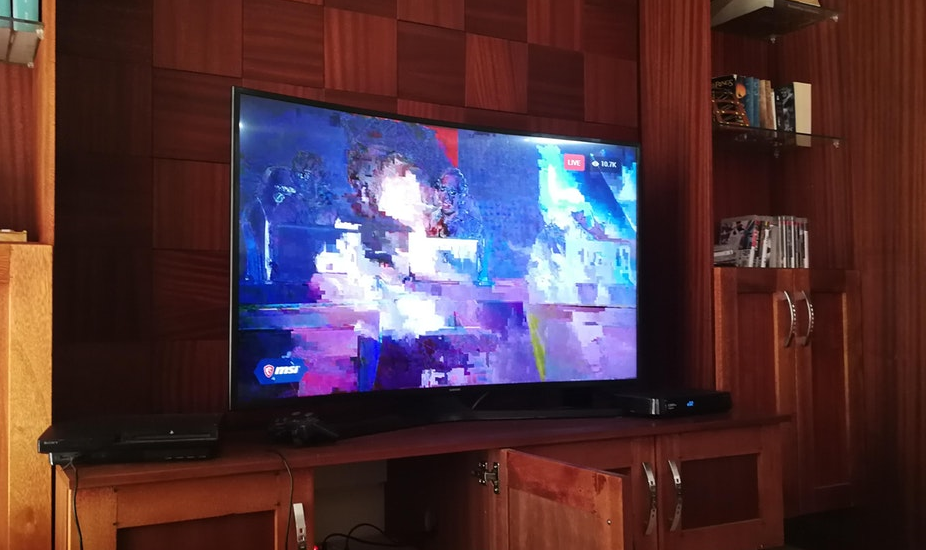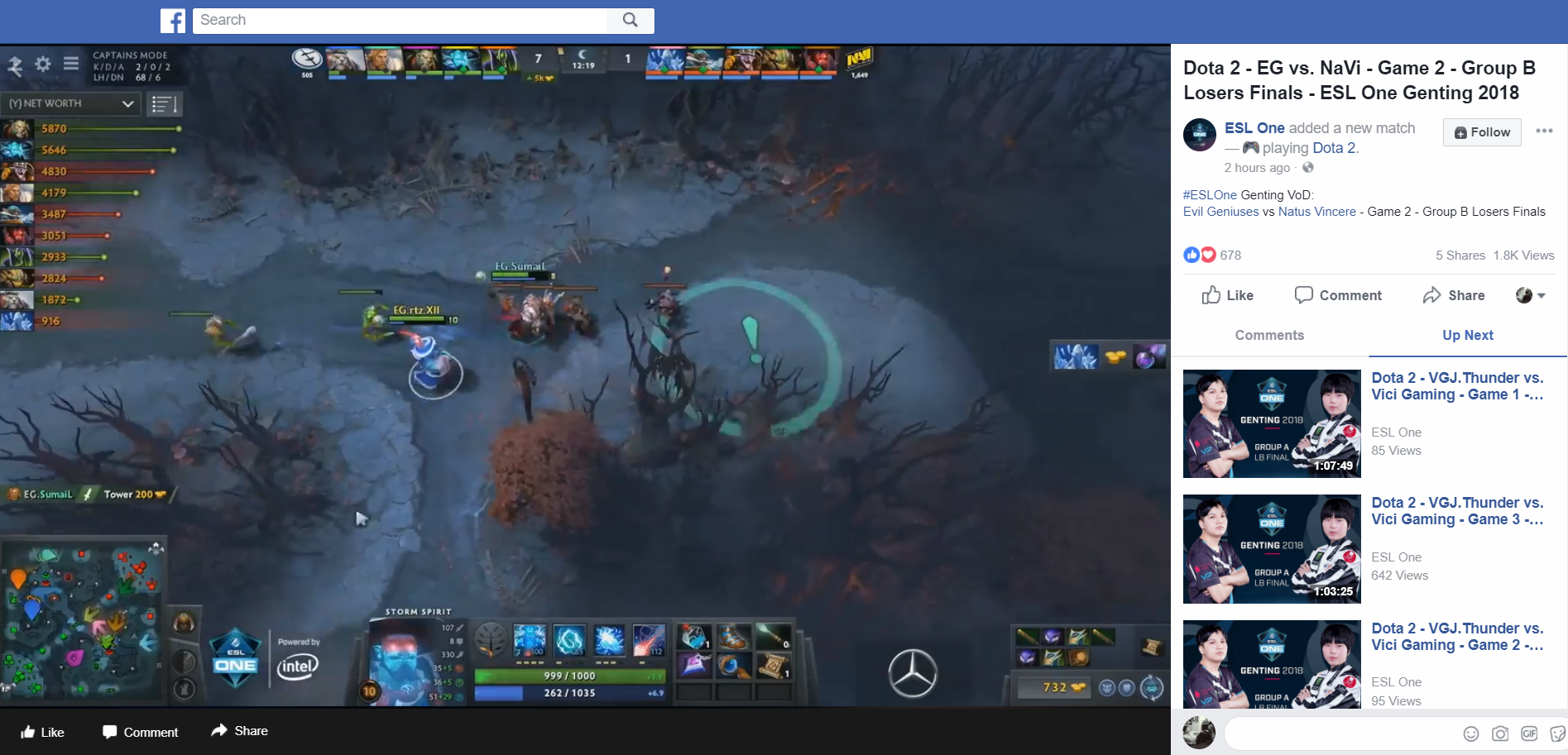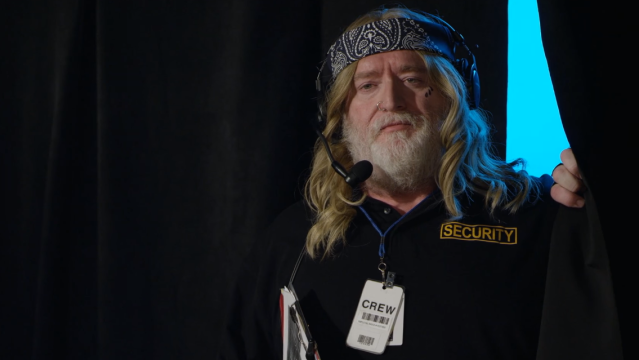Gabe Newell, Valve’s billionaire co-founder and current president. Image via YouTube
An exclusive broadcasting deal between ESL, one of the largest esports organisations in the world, and Facebook, a malignant social media tumour too insinuated into daily life to safely remove, has shown the shortcomings of gaming company Valve’s hands-off approach after the first major Dota 2 tournament subject to the deal become a spectating nightmare.
Yesterday, after days of fan complaints about janky feeds and audio problems with Facebook Live, a prominent Dota 2 player was banned from Twitch for running his own stream of the tournament.
Brian “BananaSlamJamma” Canavan, who plays for the team VGJ.Storm, announced the news on Twitter at 3:00am on Wednesday morning, sparking a debate about just how much authority ESL and Facebook have to uphold their exclusivity agreement given Valve’s public stance that “anyone should be able to broadcast a match from DotaTV for their audience.”
I’m not happy about it, but I feel obligated to point out that broadcast rights are THE largest source of economic rents for nearly EVERY professional or major competitive sports league around the world. Esports is not different just “because we’re esports”.
— Nahaz (@NahazDota) January 23, 2018
Dota 2 allows people to watch competitive matches from within the game. These feeds, run by Valve and called DotaTV, can then be streamed to services like Twitch with personalised overlays and user-supplied commentary. Canavan and others were doing exactly this for ESL One Genting, as many players often do for big tournaments given Valve’s vague and lightly enforced standards.
Genting is a $US400,000 ($493,495) esports tournament going on right now in Malaysia. It’s Dota 2’s biggest event of the year so far and the first to take place under this new deal with Facebook.
Caveats like the ones perpetuated by Valve make exclusivity deals, the types most sports leagues traditionally use to try and monetise coverage, much more fraught in esports, but especially with Dota 2 and other Valve-run games like Counter-Strike: Global Offensive.
Trying to enforce the deal it made with Facebook then, ESL filed DMCA (Digital Millennium Copyright) takedown requests with Twitch against the infringing players claiming that in these specific cases Valve’s rules about streaming had been breached. “Keeping with these guidelines, and the agreement we have to broadcast ESL One, “We are not going to allow any streams that are competing with our main language streams and we cant let streams that monetise content from this tournament stay up,” Jonas “bsl” Vikan, an ESL Tournament Director, said on Reddit.

An example of the ESL feed streaming through the Facebook video app for Samsung SmartT. Image credit: ModderOtter, via Reddit.
Fans on the Dota 2 subreddit, Twitter, and elsewhere, weren’t convinced by ESL’s argument, in part because of how murky Valve’s language about alternative tournament streams is. Here’s the text from Valve’s October 2017 blog post titled Broadcasting Dota 2:
“To that end, in addition to the official, fully-produced streams from the tournament organiser itself, we believe that anyone should be able to broadcast a match from DotaTV for their audience.
However, we don’t think they should do so in a commercial manner or in a way that directly competes with the tournament organiser’s stream. This means no advertising/branding overlays, and no sponsorships. It also means not using any of the official broadcast’s content such as caster audio, camerawork, overlays, interstitial content, and so on.
Finally, this is not permission for studios to broadcast each other’s events. In general, everyone should play nice together, and we think the boundaries should be pretty clear.”
That last bit, “everyone should play nice,” is usually the type of thing people will mockingly say when paraphrasing unclear rules — not an explicit part of the rules themselves.
Since Valve has never clearly defined what it means by “commercial manner” or “directly competes,” no one’s really sure how much control the company intends for third-party broadcasters and their partners to have with big, sanctioned events. Wobbly phrases like “we don’t think they should” don’t help either.

While Valve owns Dota 2 and the footage of it streamed through DotaTV, most of the game’s competitive tournaments are organised by third-parties. Broadcasts like Genting, which include the feed from DotaTV, are owned by ESL because ESL runs the event. That’s why they’re the ones who put together an exclusive deal to distribute the broadcast through Facebook Live. Twitch’s guidelines require it to take down any content it believes users aren’t authorised to stream, which is what ESL has been arguing.
“The DMCA required Twitch to take down the streams once properly noticed by ESL, and the streamers can file counter takedown notices that will allow them to put their streams back up if they believe they have the right to stream this content,” said Bryce Blum, a lawyer specializing in esports, in a Reddit post.
“ESL’s DMCA takedown notices likely aren’t appropriate because they don’t own the underlying gameplay, but they’re in a tough position and I think the hate is largely unfair and misses the nuance of the situation. The core problem here is that Valve’s policy is vague.”
Henrik “AdmiralBulldog” Ahnberg is one of the game’s more famous players known for his alternative tournament streams which can sometimes garner tens of thousands of eyeballs. Yesterday he called for Valve to clear up matters itself, but so far the company hasn’t issued any statement or clarification of its rules and hasn’t yet responded to a request for comment by Kotaku.
Did we not have this issue about 2 months ago and then valve said stop it mr organizers but now its happening again anyways? Valve said we can watch games from dota tv but it gets people banned? DansGame Explain.
— Henrik Ahnberg (@AdmiralBulldog) January 24, 2018
Ulrich Schulze, on the other hand, Senior Vice President of Product for ESL, took to Reddit earlier today for a two hour AMA (Ask Me Anything) to try and elaborate on the organisation’s actions.
He spent most of the time responding to complaints about performance issues with Facebook Live and the lack of certain Twitch features like “clipping” which allows people to create and share match highlights easily online.
On the topic of the bans and competing streams, however, he stated:
“We create and produce the content of the tournament, we do have legal agreements with Valve for those tournaments, and we had streams taken down which violated a policy laid out and publicly communicated.”
He added that while ESL discussed Valve’s streaming policy with the company in the context of the Facebook deal it’s still “far to open to interpretation.”
“At the moment, even if an organiser has an exclusive deal with Twitch, anyone could just stream DotaTV of the matches on Youtube,” said Schulze. “I believe there will be more discussion around this in the coming weeks.”
The sticking point for ESL appears to be the monetisation issue, including streams which allow donations and or have sponsors. Canavan’s account, meanwhile, has been unbanned, although he hasn’t gone back to streaming Dota 2. A much smaller streamer and caster who goes by Mike Le Phoenix also had his Twitch account banned due to a DMCA complaint and it has returned as well.
As an un-monetised channel (with much fewer viewers), he doesn’t believe he’ll get in trouble going forward after ESL said it wouldn’t go after non-commercial streams, and has continued to broadcast different matches as a result.
This entire mess runs in stark contrast to Blizzard’s Overwatch League (OWL), which in its opening few weeks has seen record audiences for the game on its Twitch channel. In defence of exclusivity deals, Schulze pointed to this example. “Streaming to multiple platforms changes the business side of this — exclusive rights are much more valuable to platforms,” he said.
“That is why OWL is only on Twitch and not on Youtube as well.” He added that while ESL expected some initial drop off in viewers due to the platform change, it and the sponsors it works with “see the future potential.”
Unlike Valve, however, which generally has third parties run its games’ tournaments, Blizzard runs the OWL. So they have created a clear line of accountability and (somewhat) clearer guidelines for everything else related to its esport, though why Blizzard continues to drag its feet in publishing an official code of conduct for pro Overwatch players remains a mystery.
For Dota 2 at least, the complete misalignment between corporate interests, media strategies, and fan expectations isn’t going away until Valve eventually weighs in and clears the things up.

Comments
3 responses to “Valve Makes ‘Exclusive’ Streaming Deals Like Facebook’s Incredibly Confusing”
Just FYI Valve updated their stance on the DMCA’s and stance on who can stream in a official blog post http://blog.dota2.com/2018/01/dotatv-streaming/
No one besides Valve is allowed to send DMCA notices for games streamed off of DotaTV that aren’t using the broadcasters’ unique content
figures like BSJ or Bulldog that occasionally watch tournament games on their channel, to be able to stream off of DotaTV. It is not to allow commercial organizations like BTS to compete with the primary stream.
Seems like that’s Valve’s way of telling the tournaments to go blow themselves for trying to claim rights to game content that they have no control over.
this seems fine for now but dialogue must remain open between popular gaming websites facebook & valve
Facebook will never say anything on the matter. Its facebook, They just need to fix their platform.